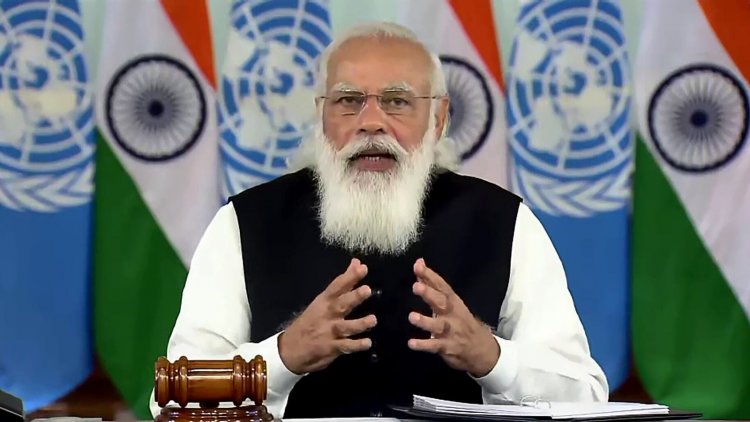India at the UNSC on Global Maritime Security
STORIES, ANALYSES, EXPERT VIEWS

On August 9, PM Modi led the Indian delegation to the UN Security Council for presiding over a discussion on global maritime security. Modi emphasised the importance of international sea routes as the ‘joint heritage’ of humanity and the lifeline for international trade. He also referred to challenges posed by maritime disputes between countries. He said the oceans were crucial to global challenges like climate change, international trade, piracy and maritime boundary disputes. He stressed the need for mutual understanding in dealing with global maritime security issues by the removal of barriers to legitimate maritime trade. He urged that ‘the settlement of maritime disputes must be peaceful, and on the basis of international law only’.
The adoption of his speech and thereby of its proposals by the UN Security Council, writes G Parthasarathy (Chancellor, Jammu Central University & former High Commissioner to Pakistan) “sets some well-defined parameters to deal with differences on maritime boundaries.”
While India has settled its maritime disputes with virtually all its neighbours, except Pakistan, China has maritime disputes with Japan, South Korea, North Korea, Vietnam, the Philippines, Singapore, Malaysia, Indonesia, Brunei and Taiwan.
In his address to the UN Security Council, Modi alluded to the fact that India had actually handed over an island in the Bay of Bengal to Bangladesh after the ruling of an international tribunal. China, however, made a mockery of international law by rejecting a ruling against it by the tribunal in 2016, rejecting Beijing’s claims on several islands that it had occupied on its maritime boundaries with the Philippines. China has also forcibly denied the Philippines any access to islands it had seized.
In a detailed study carried out by two Vietnamese scholars, Nguyen Hong Thao and Nguyen Thi La Huong, about the tribunal verdict, the scholars noted: ‘After a period of opting for caution and downplaying the victory that his country won in the South China Sea arbitration, Philippines President Rodrigo Duterte asserted in the UN General Assembly in 2020, that: “The (tribunal) award is now part of international law, beyond compromise, and beyond the reach of passing governments to dilute, diminish or abandon.”
Parthasarathy notes that “if President Duterte took four years to take up the issue of Chinese occupation of his country’s territory internationally, it is also surprising that other ASEAN countries like Malaysia and Brunei seem reluctant to use the tribunal ruling to challenge China internationally. Moreover, ASEAN countries, as a group, have not united to challenge China’s territorial claims. Indonesia did, however, act firmly to challenge Chinese expansionism by militarily asserting its rights on its maritime boundaries……
“What use is ASEAN as a regional organisation if it cannot support its own members facing territorial claims by an irredentist and expansionist China? It would be useful, if Quad, whose members have formal dialogue partnerships with ASEAN, raises these issues at high-level ASEAN meetings, both bilaterally and jointly. India enjoys cordial relations with ASEAN, which will have to decide, as a regional grouping, if a surrender of territorial integrity by any one of its members to China is a desirable development. Such surrender does whet China’s appetite for undertaking similar actions elsewhere. While India need not publicly allude to such exchanges with ASEAN, it should, as a member of Quad, be prepared to have these issues taken up by Quad members at meetings with their ASEAN dialogue partners.”
(See last week’s sorry in NbN for more details)
















